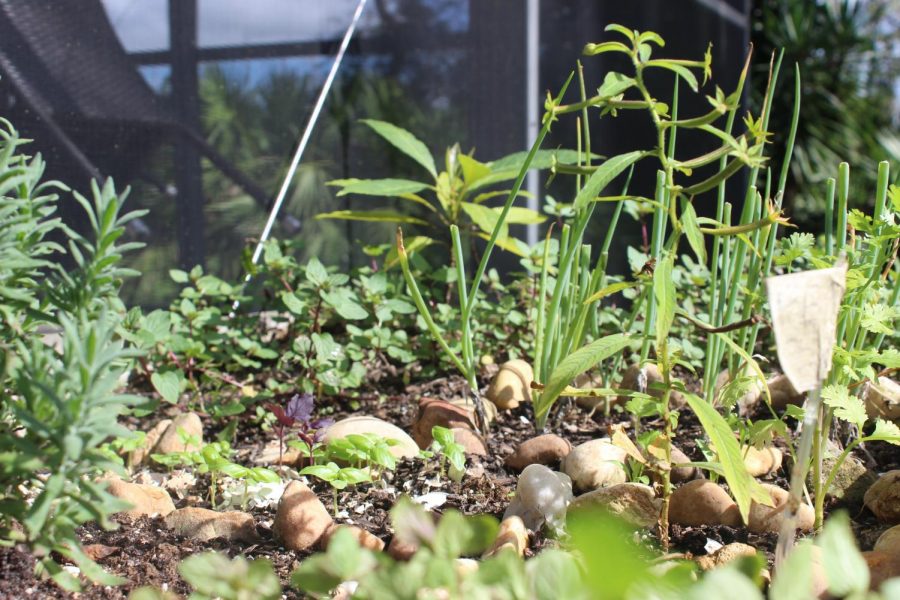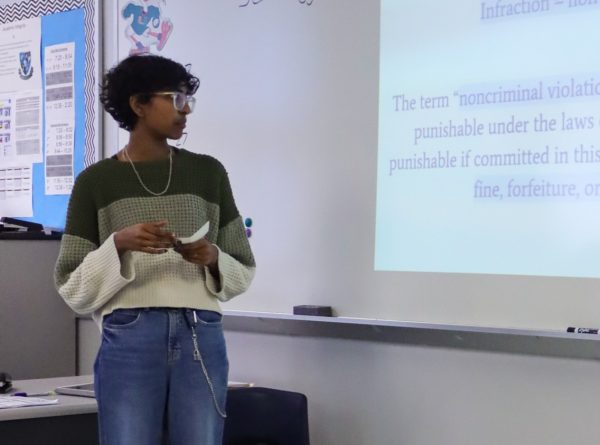Going Green
photo by Sophia C
Abigail Miller’s garden has newly sprouted plants due to the recent, weeklong overcast.
Worldwide, the impending sense of doom concerning global warming has established itself in the minds of many. The gradual rise of global temperatures has been an underlying issue with limited publicity for decades. However, interest in climate change spiked when scientists began to theorize that the damage greenhouse gasses have done would become irreversible by the year 2030.
However, its publicity has led to discrepancies within popular opinion, and the extent of division has caused disputes ranging from how to best combat global warming to if extensive economic investment will reap any benefit.
On a local scale, every student has been affected differently by the prominence of global warming. While some struggle to put sustainability on their list of priorities, others find themselves making an effort to maintain sustainable practice.
“My family and I started a farm, partly because we knew how bad the farming industry was affecting the climate,” sophomore Abigail Miller said. “Having our own garden is kind of a relief, because no matter what, I know that we’re doing our part.”
She and her family feel a strong responsibility towards the environment, and their efforts to remain sustainable prove their concern.
For Miller, the effects of global warming have already become prominent to her, and the well-being of her family’s farm is now threatened by rising temperatures.
Although Miller has been working to produce a variety of fruits and herbs for over a year, her success has been hindered by the increasing temperatures.
Despite being a global issue, climate change has failed to prove relevant for some students. Its prominence is often reduced by the lack of immediate, visible consequences that students don’t regularly observe in their community.
“It’s hard to see how climate change affects me, mostly because of our location,” sophomore Nick Pryor said. “It just feels unrealistic to deal with it now too.”
Like many others, Pryor’s view on preventing global warming is similar to putting off an assignment; because dealing with it doesn’t seem important until the night before the due date.
On the other hand, some are simply not able to reduce their carbon footprint, either because of their financial situation or lack of spare time.
“Half of the struggle is just how convenient being sustainable is,” sophomore Cameron Jorgensen said. “Not everyone has time to stop using plastic or take care of a compost pile.”
Although sustainably-sourced brands, plant-based alternatives, and organic produce are becoming increasingly common, their prices remain higher than average products. On average, a carton of organic milk is marked up to $2 more than standard milk, and on average, organic fruits and vegetables cost at least 20% more than standard produce. This common upscale in price ultimately makes sustainable investments harder for many teens.
Despite the global rise in climate awareness, Pryor thinks that local change won’t do much to alter the course of global warming.
“If one person does something, it won’t stop climate change. It takes a whole community effort.”
As students struggle to do their part in spite of the obstacles, the prominence of climate change remains, whether it be seen as a short-lived topic of interest or the downfall of life as the world knows it.
Your donation will support the student journalists of Hagerty High School. We are an ad-free publication, and your contribution helps us publish six issues of the BluePrint and cover our annual website hosting costs. Thank you so much!







